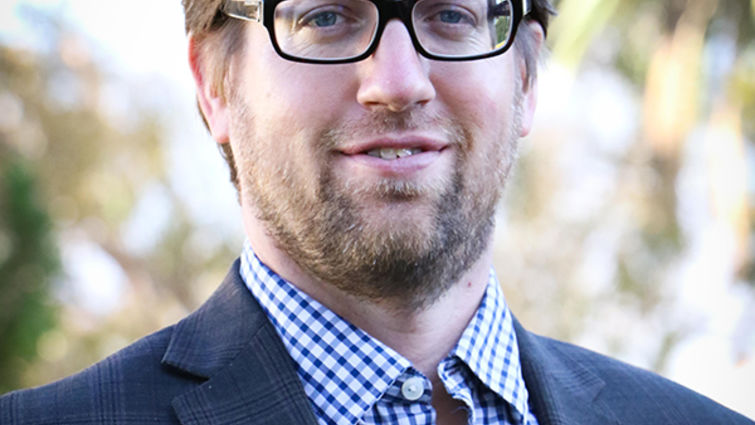
Dr. Gleason is using crowdfunding to discover what would happen if typical office workspaces were reimagined to help improve workers' physical and mental health.
What if we could reimagine the typical office, and create an environment capable of improving our physical and mental health? Peter Gleason, PhD, assistant professor of health and social behavior in the Loma Linda University School of Public Health is asking this question of his own workspace.
“Millions of people suffer an elevated risk of heart disease and death because of prolonged daily sitting,” says Gleason. “A movement-oriented office design can increase activity which will hopefully decrease long-term cardiovascular and mental health problems.”
The study would observe a person’s movements in a standard, sitting work environment. Then a standing desk would be introduced, along with other movement inspiring elements, in order to gauge the difference in activity.
“With an epidemic of obesity and other chronic diseases plaguing our country, we are really in need of innovative strategies and research addressing risk factors that promote poor health.” Says Dr. Rhonda Spencer, assistant professor in the School of Public Health.
Besides the positive ramifications for all of us that work in an office all day, the way this study is being funded may be interesting for academics.
“I was looking for a feasible way to fund my research project. The budget for this specific project is too small to seek funding from formal channels but it’s too big to use petty cash. I've heard of crowdfunding, but not until I began working with a graduate student on a crowdfunding project did I begin to see the possibilities for research.” Notes Gleason.
As far as he knows, Gleason is the first faculty member at Loma Linda University to seek financing for research through crowdfunding.
“I don’t know of any other faculty on campus using crowdfunding to support their research but I see potential in it. If people outside of academia had access to review research projects, they may fund areas that affect them personally,” says Gleason. “I think it would open up doors to the non-academic community in positive ways.”
To view more about the study or help with funding, visit this page.
Contributed by Marcus Chapman, director of communications, School of Public Health
